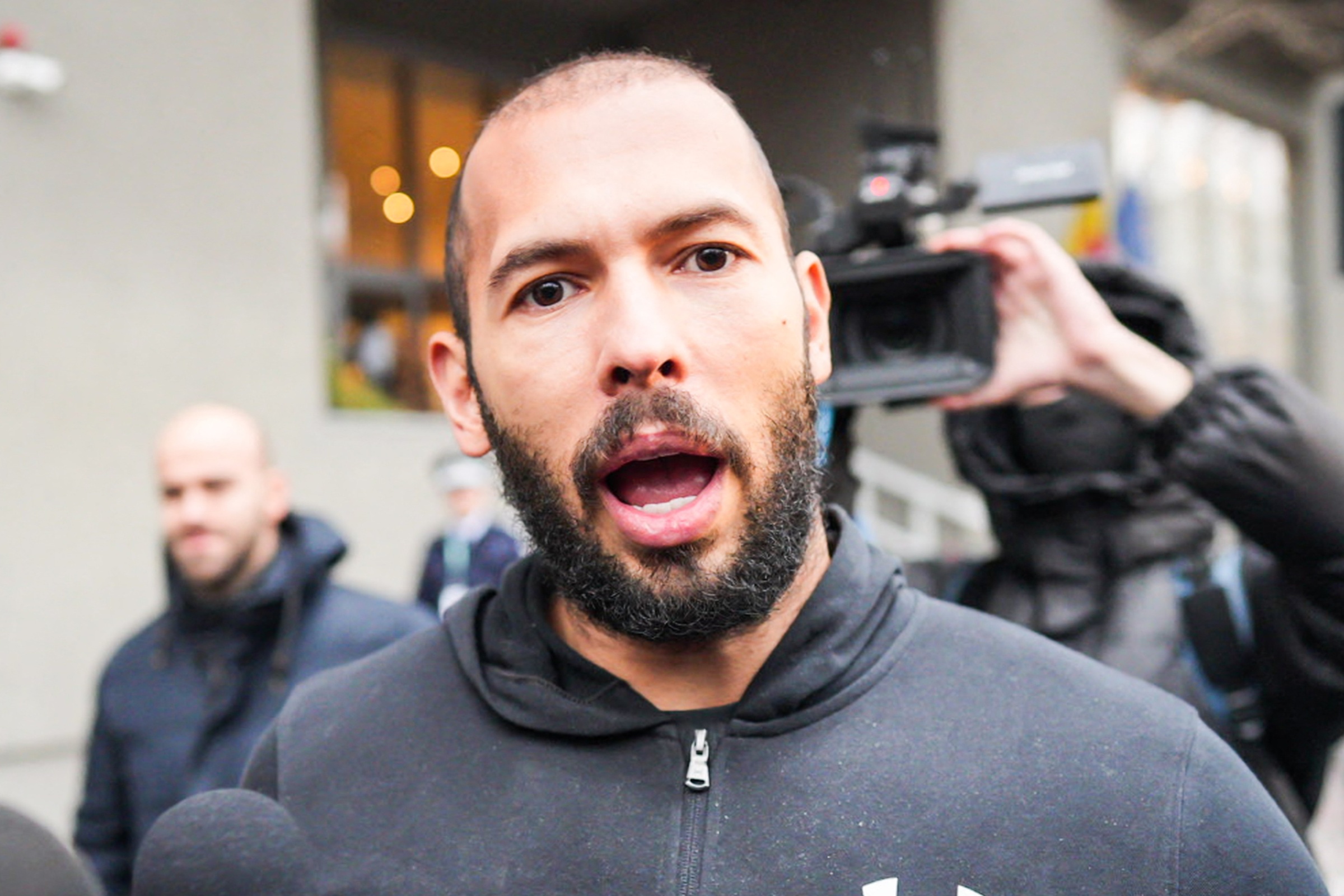In recent years, Andrew Tate has become a polarizing figure on social media, particularly due to his controversial statements and tweets. One of the most debated topics surrounding him is the allegations of racist tweets that have sparked outrage and discussion across various platforms. Understanding the context and implications of these tweets is crucial for anyone looking to grasp the full picture of Tate's public persona and the reactions he incites.
As a former kickboxer, entrepreneur, and social media influencer, Tate has built a reputation that often straddles the line between motivational speaking and outright provocation. His tweets, in particular, have drawn both fervent supporters and vehement critics. This article aims to delve into the specifics of Andrew Tate's racist tweets, the public response they garnered, and the broader implications for social media discourse.
The following sections will not only explore the content of the tweets but also examine the societal impact of such statements, the importance of accountability in online platforms, and what this means for future interactions in the digital space. Join us as we unpack this complex narrative surrounding Andrew Tate and his controversial online presence.
Table of Contents
- Biography of Andrew Tate
- Overview of Controversial Tweets
- Public Reactions to the Tweets
- Impact on Social Media Discourse
- Accountability in Social Media
- Long-term Implications for Andrew Tate
- Conclusion
- Call to Action
Biography of Andrew Tate
Andrew Tate, born on December 1, 1987, in Washington, D.C., is an American-British former professional kickboxer, businessman, and social media influencer. He gained notoriety for his extravagant lifestyle and controversial opinions shared on various platforms.
| Personal Data | Details |
|---|---|
| Full Name | Emory Andrew Tate III |
| Date of Birth | December 1, 1987 |
| Nationality | American-British |
| Profession | Kickboxer, Entrepreneur, Influencer |
| Social Media Following | Millions across platforms |
Overview of Controversial Tweets
Andrew Tate's social media presence is marked by numerous tweets that have been labeled as racist or offensive. Some of the most notable tweets include:
- Statements that generalize or stereotype specific racial groups.
- Comments perceived as derogatory towards marginalized communities.
- Provocative remarks that challenge societal norms and values.
These tweets have led to significant backlash from various groups and individuals advocating for social justice and equality. The context in which these statements were made often amplifies their impact, leading to heated debates about freedom of speech versus hate speech.
Public Reactions to the Tweets
The public reaction to Andrew Tate's tweets has been mixed. While some individuals support his right to express his views, others vehemently oppose his statements, labeling them as harmful and divisive.
Supporters vs. Critics
Supporters argue that Tate's tweets reflect a certain level of candor and that he should not be penalized for expressing his opinions. Critics, on the other hand, contend that his words perpetuate racism and contribute to a culture of intolerance.
Media Coverage
Media outlets have extensively covered Tate's tweets, often framing them within the larger discourse on racism and online hate speech. This coverage has further fueled discussions around accountability and the responsibilities of public figures.
Impact on Social Media Discourse
Andrew Tate's controversial tweets have highlighted the complexities of social media discourse, particularly regarding the balance between expression and responsibility. Key points include:
- The role of social media platforms in moderating content.
- The implications of public figures using their platforms to spread potentially harmful ideas.
- The need for users to engage critically with content and consider the broader context.
Accountability in Social Media
Accountability in social media is a pressing issue, especially in light of Tate's tweets. The following aspects warrant consideration:
Platform Responsibility
Social media platforms have a responsibility to create safe environments for users. This includes addressing hate speech and harmful content effectively. However, the implementation of such policies can be inconsistent.
Individual Responsibility
Users must also take responsibility for their online interactions. Engaging with content critically and choosing to challenge harmful narratives are vital steps in fostering a healthier online community.
Long-term Implications for Andrew Tate
The long-term implications of Andrew Tate's racist tweets could significantly impact his brand and online presence. Considerations include:
- Potential loss of business opportunities due to public backlash.
- Increased scrutiny from media and advocacy groups.
- The possibility of social media bans or restrictions.
Conclusion
Andrew Tate's controversial tweets have sparked significant debate about racism, accountability, and social media ethics. The reactions to his statements underscore the importance of examining the impact of words in the digital age. As consumers of social media, we must remain vigilant and critical of the content we engage with.
Call to Action
We invite you to share your thoughts on Andrew Tate's tweets. Do you believe in the importance of free speech, or do you think there should be more accountability for public figures? Leave your comments below and feel free to share this article with others who might be interested in this ongoing conversation.
Thank you for reading! We encourage you to explore more articles on our site for further insights into pressing social issues.
Article Recommendations


